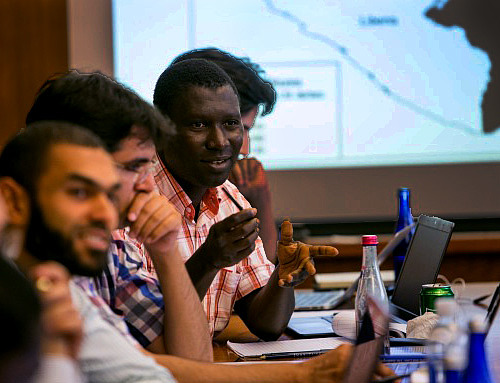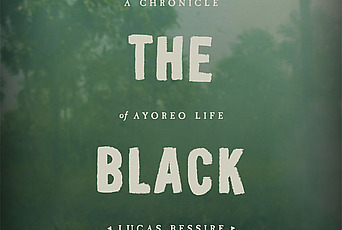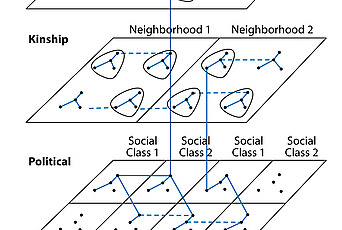A Global Politics of Knowledge

Let us imagine a conversation between a literary scholar from Palestine interested in the reception of Ibn Ruschd’s commentary on Aristotle, an anthropologist from Iraq examining the experience of exiles fleeing the war, an economist from the Ivory Coast assessing the impact of microfinance projects, a sociologist from Benin investigating gas smuggling across the border, a political scientist from Brazil analyzing clientelism in local elections, and a legal scholar from Chile studying anti-discrimination laws. This conversation did take place at the Institute for Advanced Study as part of the Summer Program in Social Science that was launched in September 2015. Other scholars involved in the program were conducting research on environmental conflicts in Buenos Aires, crack use in Rio de Janeiro, income inequality in Egypt, water shortage in rural Iran, corruption practices in the Cameroonian health system, debates over the age of sexual consent under South African law, and negotiations at the World Trade Organization—among other themes.
The idea of this special program was born from the observation that certain regions of the world are poorly represented among the Members who are selected each year to participate in the regular program of the School of Social Science. These regions were in particular Latin America, the Middle East, and Africa. Despite specific efforts to reach out for scholars from these parts of the world, which resulted in a modest increase in applications and memberships (the 2015–16 regular program includes social scientists from the six continents), the imbalance remained, probably due to both a lack of information and a difficulty to obtain sabbatical leaves. As an alternative, a shorter program was proposed. It condensed within a few weeks what is usually undertaken during a whole academic year, the originality of this program being its extension over three years. Indeed, after the first session in Princeton, the other two will be organized in 2016 at the École des Hautes Études en Sciences Sociales in Paris, and in 2017 at the Swedish Collegium for Advanced Study in Uppsala. This continuity over time will allow for the building of a scientific network and the realization of collective projects.
The program focuses on outstanding young scholars selected in the same way as Members are in a regular year. For the first cycle, the nineteen fellows come from fourteen countries, nine in Latin America, five in the Middle East, and five in Africa. The disciplines represented are sociology, anthropology, history, geography, economics, law, political science, and literary studies. Almost half the scholars had obtained their Ph.D.s from their national universities. All of them teach and do research in local institutions of higher education or scientific research of their country.
The conversation developed during the two weeks spent at the Institute was rich and intense across disciplines, across themes, and across continents. But apart from the geographical diversity, it was not so different from the conversations that take place among Members of the regular program. What was distinct, however, is the project that emerged from the discussions: that of a meta-analysis to explore and confront the various epistemologies at work. Rather than simply presenting one’s research, it consists in using this research to apprehend the global politics of knowledge that is at stake in it. Concretely, it means to inquire the circulation, appropriation, and contestation of ideas, methods, and analyses, as well as the interactions with publics and the translation of the outcome into action.
At this meta-level, the problems posed by the dominance of models elaborated can be similar for an anthropologist from the Middle East and a political scientist from Latin America, and the challenges to transform scientific results into policies can be equivalent for a Mexican sociologist and an African economist. The experience acquired in one field can thus enrich the practices in another. Interestingly, in discussing this politics of knowledge, the scholars involved in the program wanted to go beyond the simple opposition between the global North and the global South, while not ignoring the asymmetry underlying their relationships. Similarly, they considered that, to understand the difficulties faced by scholars in their countries, the intellectual aspect was as important as the material dimension, particularly in terms of access to resources or working conditions.
This project, provisionally titled “Writing the Social Science Across Different Worlds,” has generated a considerable interest within the group and will be developed during the coming two years in Paris and Uppsala. It is emblematic of the general purpose of the Summer Program in Social Science, which is twofold. On the one hand, it is designed to offer scholars a stimulating scientific environment for their research. On the other hand, it is conceived to enrich the realm of the social sciences through the confrontation of different scholarly traditions.


